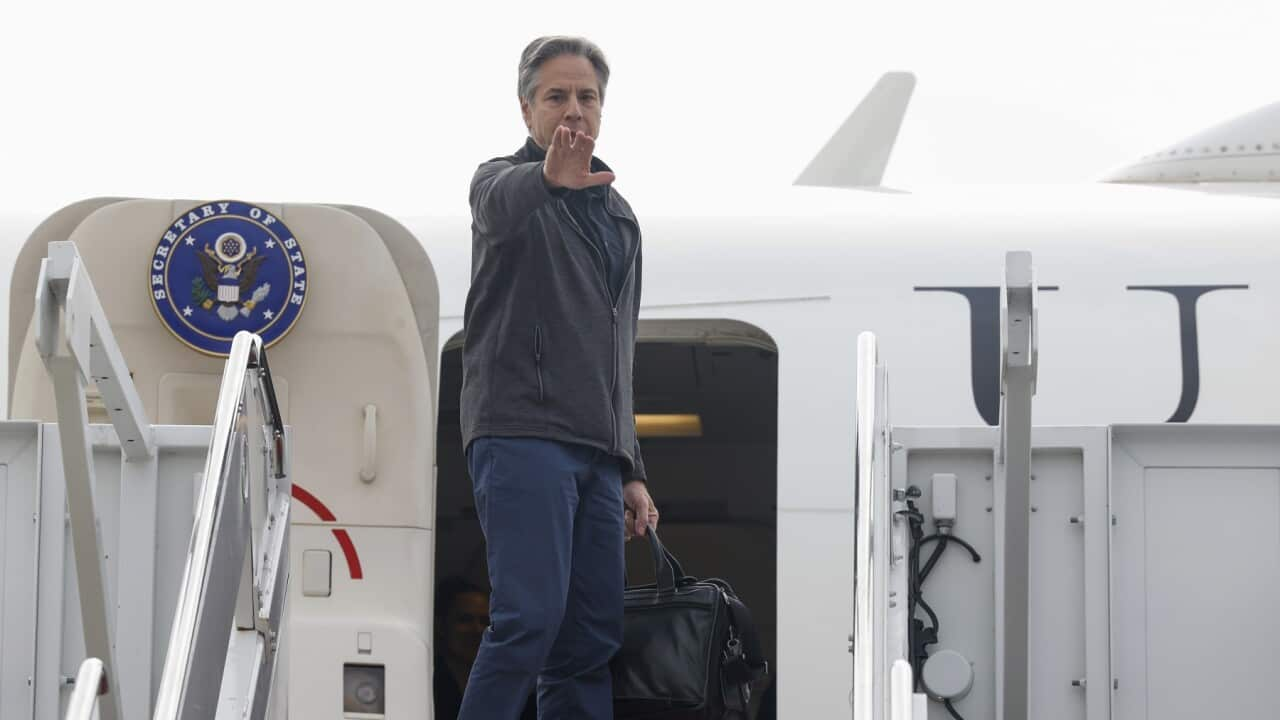TRANSCRIPT
Hamas officials have revealed a delegation will visit Cairo for talks aimed at securing a ceasefire with Israel.
It comes as mediators have increased efforts to reach a deal ahead of an expected Israeli assault on the southern city of Rafah.
The talks will take place between the Hamas delegation and the Qatari and the Egyptian mediators to discuss remarks the group has made over the Israeli response to its recent proposal.
Saudi Arabia's foreign minister Prince Faisal bin Farhan bin Abdullah has stressed the need to solve the Gaza conflict once and for all, arguing it would be for the best.
“It is in everybody's interest in the region, our interest, the interest of the Palestinians, the interest of the Israelis, the interest of the global community of nations, that we find a pathway to resolve this issue once and for all, because that's the only way we are going to avoid, first of all, a repeat, but also we're going to avoid that the suffering that has happened on all sides happens in vain. This is just not an approach that is possible.”
Previous ceasefire discussions have failed to bridge gaps in the two sides' positions.
Hamas says it seeks an accord for a permanent end to the war and for Israel to pull its forces out of the Gaza Strip.
Israel has only offered a temporary ceasefire to free around 130 hostages remaining in captivity and to allow the delivery of more humanitarian aid.
But it says it won't end its operations until it has achieved its aim of destroying Hamas.
Israel's chief military spokesman Daniel Hagari says it's also scaling up aid going into Gaza, amid international pressure to increase supplies for Palestinians.
“In the coming days, the amount of aid going into Gaza will continue to scale up even more. Food, water. Medical supplies. Shelter equipment and other aid. More of it is going into Gaza than ever before. This increase in aid is a result of increased effort, among them: opening the Israeli port of Ashdod and a new crossing that was opened into Northern Gaza and increasing the amount of aid coming from Jordan — through Israel — entering Gaza through the Kerem Shalom Humanitarian Aid Crossing.”
Israel's foreign minister says a planned incursion into Rafah, where more than one million displaced Palestinians are sheltering, could be put off should a deal emerge to release the Israeli hostages.
Western countries, including Israel's ally the United States, have urged Israel to refrain from attacking the border city on concern over potential civilian casualties.
White House national security spokesman John Kirby says Israel has agreed to listen to U-S concerns before it launches an invasion of Rafah, with U-S Secretary of State Antony Blinken due to visit the Middle East next week.
“That's going to be right at the top of the list for Secretary Blinken to keep pushing for this temporary cease fire. We want it to last for about six weeks. It would allow for all those hostages to get out. And of course, to allow for easier aid access to places in Gaza, particularly up in the, in the north. So he's going to be working on that very, very hard. He'll also be talking to the Israelis about their intentions, and they're thinking about Rafah military operations and sort of where they are in the planning stages for that.”
Palestinian President Mahmoud Abbas says only the United States could stop Israel from attacking Rafah.
He has also suggested he expects an attack on Rafah in coming days, saying even a small strike would force the Palestinian population to flee the Gaza strip.
“What’s happening now in Gaza, and what will happen in the coming few days is what Israel will do with attacking Rafah because all the Palestinians from Gaza are gathered in Rafah, and it’s only one small strike that would force them to flee the Gaza Strip, and here the biggest catastrophe in the history of the Palestinian people would then happen. We hope that Israel stop doing this attack, we call on the United States of America to ask Israel to not carry on the Rafah attack, because America is the only country able to prevent Israel from committing this crime.”
Meanwhile, senior official with the United Nations Mine Action Service, Pehr Lodhammar, has revealed the latest conflict between Hamas and Israel has left around 37 million tons of debris in the Gaza Strip.
"What we do know is that we estimated 37 million tons of debris, which is approximately three hundred kilos of debris per square meter, 65 percent of the buildings that have been destroyed are residential buildings. An estimation has been done based on the current number of tons of debris in Gaza, and with 100 trucks, we're talking about 14 years of work with 100 trucks."













